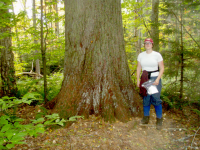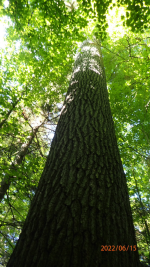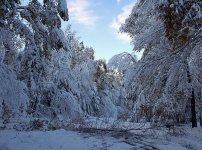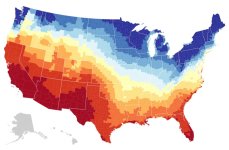In another thread, I mentioned that not much changes between my visits to favorites spots in the ADK's.
yknpdlr noted:
So not to clutter that other thread with so much drift, I'll carry on here...
During that Derecho, one of my former employees was camped at Huntley Pond In July of 1995, her recounting of that experience was harrowing. She never primitive camped again.
The other recent big blowdown in 1950 caused similar effects, another of my former employees was a young boy, camped with his family on their property on Long Lake. He was but 4 years old then, but was still traumatized by that event many decades later.
My gang was camped on Rock Lake (not pond) during the same storm that blew down a huge tree and crushed Lynn Malerba, a well known Adirondack guide, near Rock Pond in the spring of 2018.
We had heavy rain, hail, high winds with limbs and trees dropping all around us. I went to sleep and missed most of it, but the others, including my son, DIL, SIL, nephew and his GF, were all so shook up that we packed up and left with first light.
Any one else get caught up in these big blows?
yknpdlr noted:
Unless there is a Derecho when thousands of acres of trees topple and for decades change how the entire landscape is accessed.
So not to clutter that other thread with so much drift, I'll carry on here...
During that Derecho, one of my former employees was camped at Huntley Pond In July of 1995, her recounting of that experience was harrowing. She never primitive camped again.
The other recent big blowdown in 1950 caused similar effects, another of my former employees was a young boy, camped with his family on their property on Long Lake. He was but 4 years old then, but was still traumatized by that event many decades later.
My gang was camped on Rock Lake (not pond) during the same storm that blew down a huge tree and crushed Lynn Malerba, a well known Adirondack guide, near Rock Pond in the spring of 2018.
We had heavy rain, hail, high winds with limbs and trees dropping all around us. I went to sleep and missed most of it, but the others, including my son, DIL, SIL, nephew and his GF, were all so shook up that we packed up and left with first light.
Any one else get caught up in these big blows?




